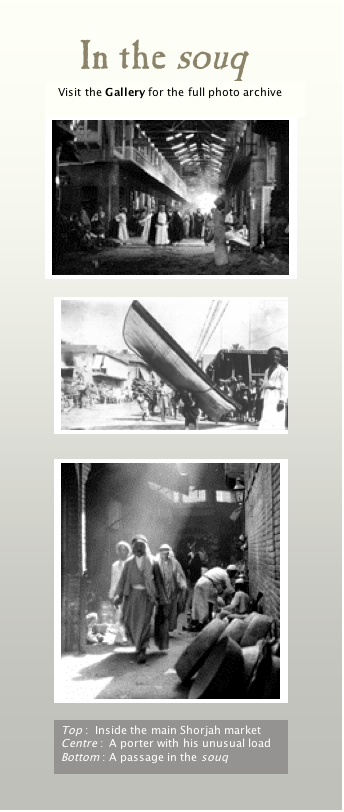The bazaars
 VIOLETTE MAKES a vivid portrayal of the city streets, the bustle of the Shorjah market and souqs, bringing alive the calls of street-sellers, the noise, the scents, the heat. We meet porters carrying huge loads, vendors of fruit, vegetables, condiments, herbs, fish, chicken, lamb — and even dubious stews, as well as quack doctors. We hear stories and jokes that were making the rounds at the time.
VIOLETTE MAKES a vivid portrayal of the city streets, the bustle of the Shorjah market and souqs, bringing alive the calls of street-sellers, the noise, the scents, the heat. We meet porters carrying huge loads, vendors of fruit, vegetables, condiments, herbs, fish, chicken, lamb — and even dubious stews, as well as quack doctors. We hear stories and jokes that were making the rounds at the time.
We are in an Old Baghdad that no longer exists, hearing words from a language that is dying as we read: the Judeo-Arabic that was current in her days, when the community’s position was so important that in this Muslim land everything closed on the Jewish Sabbath, Saturday, instead of Friday as might have been expected.
With m otorised transport in its infancy, getting about was nearly always by ’arabaana, the ubiquitous horse-drawn carriage, or gharry. For those who could not afford that luxury, public transport was limited — but one unusual mode was available for Muslims: a horse-drawn, double-deck tram that carried the faithful two-and-a-half miles to their mosque at Kamazene.
otorised transport in its infancy, getting about was nearly always by ’arabaana, the ubiquitous horse-drawn carriage, or gharry. For those who could not afford that luxury, public transport was limited — but one unusual mode was available for Muslims: a horse-drawn, double-deck tram that carried the faithful two-and-a-half miles to their mosque at Kamazene.
 The so-called kari was an quaint affair under a sagging awning, more like a moving marquee than a recognisable vehicle. Access to the top deck was via an outside spiral staircase at the front.
The so-called kari was an quaint affair under a sagging awning, more like a moving marquee than a recognisable vehicle. Access to the top deck was via an outside spiral staircase at the front.
These were the scenes that imprinted themselves on Mother’s young mind — a vibrant and almost biblical backdrop that characterised the dying years of Turkish rule. But by the time the new nation was born, the family was living in a qasr (‘palace’) my grandfather built on the banks of the Tigris, well away from the risk of cholera that threatened the old city when the river was in flood.
